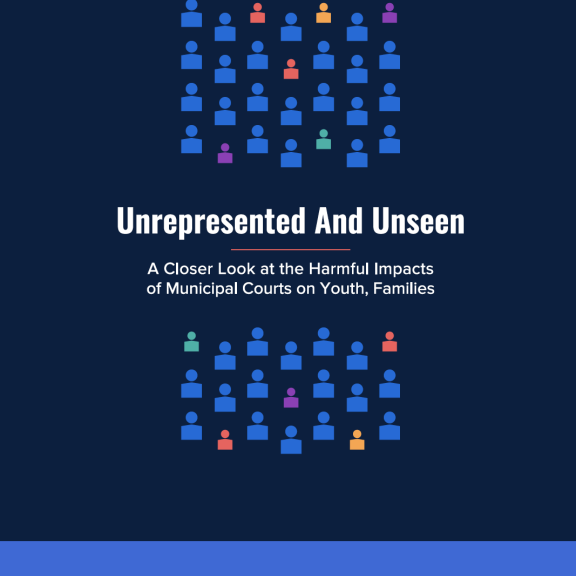From school to court: New report details extensive harms tickets inflict on students
Report focuses on Colorado's Lakewood Municipal Court system and its impact on youth
LAKEWOOD, Colorado — A new report that examines the experiences of young people who become ensnared in Colorado's municipal court system due to being ticketed at school and in their communities highlights several disturbing trends and calls on community leaders to implement needed reforms.
"Unrepresented and Unseen," published Jan. 13, 2025, by the National Center for Youth Law, is based on data obtained from Lakewood Municipal Court in Jefferson County, Colorado's fifth-most populous city. Among its troubling findings: Youth are often burdened with court bills they are unable to pay, many young people are left in the dark since they aren't appointed counsel, and students are frequently ticketed for minor, school-based conduct and fed into the school-to-court pipeline, leaving them with consequences that can last a lifetime.
"Young people, even for small offenses, are too often thrown into the court's system of punishment and surveillance, which can be scary for anyone, let alone a child who's unfamiliar with the court's policies and procedures," said Gwendolyn Walker, who co-authored the report while a Citrix Systems Racial and Social Justice Fellow at the National Center for Youth Law. "To then burden that student with ramifications that could follow and harm them through adulthood — like a criminal record or court debt — is unconscionable. Every young person deserves the opportunity to grow, learn, and thrive."
The Lakewood report summarizes practices in Lakewood Municipal Courts, but its recommended reforms are broadly applicable across Colorado’s municipal court system.
Among the recommendations are for:
- School districts to amend their discipline policies to reduce or eliminate school ticketing and instead implement restorative approaches;
- Police departments to reduce or eliminate municipal court tickets for school-based offenses; and
- Policymakers to enact legislation that eliminates municipal court fines and fees for youth, requires municipal courts to appoint counsel for youth, raise the minimum age for prosecution, and requires schools and courts to collect comprehensive data on ticketing and municipal court involvement.
“We hope that this report sheds light on municipal court practices, which have historically received little attention and remain relatively unknown,” added Hong Le, a senior attorney with the National Center for Youth Law. “We also hope to engage with more youth and families impacted by the municipal court system to ensure their voices guide meaningful reforms.”
